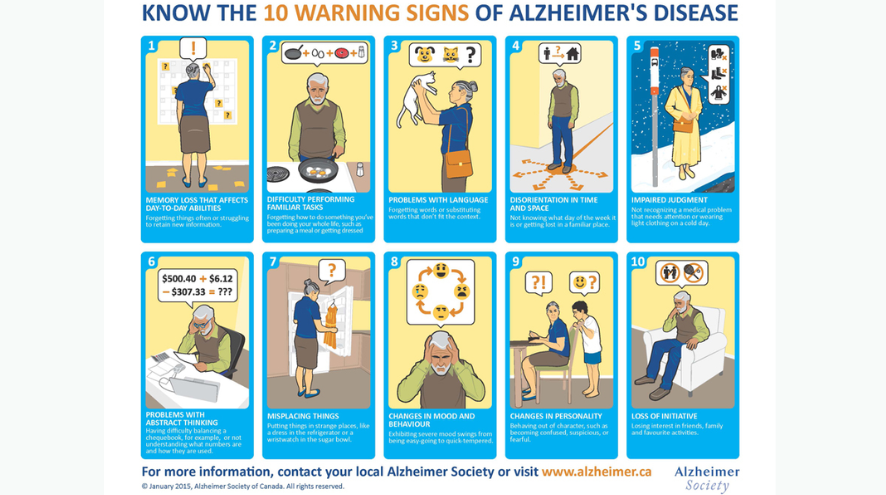10 Early Signs of Alzheimer's
Here, we delve into ten subtle signs associated with Alzheimer's. Early detection allows for timely intervention, enhancing the quality of life for individuals affected by Alzheimer's and their support networks.

While the onset of Alzheimer's is physically painless, it causes a great deal of emotional pain and frustration. Staying vigilant about subtle changes in behavior can be pivotal in diagnosing Alzheimer's and other dementias.
Alzheimer's often manifests through various signs and symptoms. Understanding these indicators is crucial for early intervention and support. Here, we delve into ten subtle signs associated with Alzheimer's.
-
Trouble remembering things
We have all forgotten important dates and activities. However, a sign of dementia would be forgetting information that was recently learned or repeating one's self over and over. They can access old information but find it hard to retain some new information or knowledge and this occurs, not once or twice, but a pattern is formed.
-
Challenges in Completing Familiar Tasks
Another sign to look out for is experiencing difficulty executing routine tasks like meal preparation, making a list of items to buy, dressing themselves up, or getting bills paid on time.
-
Alterations in Language and Communication
Sometimes, a symptom may be losing their verbal linguistics, for example, they are unable to find simple words or substitute inappropriate ones in a conversation. We have all had the ‘what is it called again’ moment. However a person with Alzheimer's may use a descriptor and instead of saying chair, they say, the thing you sit on. Rather than say a carrot, they may say that orange stuff.
-
Disorientation in Time and Place
Are they getting lost while driving? Getting lost in familiar surroundings? Missing too many appointments? Struggle with recognizing the days of the week? A person living with Alzheimer's may struggle to remember the process it took to get someplace and feel disoriented.
-
Impaired Judgment Affecting Safety
Are they making terrible decisions? Allowing strangers in to handle tasks? Sometimes, we make bad decisions, however, a person living with Alzheimer's may experience altered decision-making, especially when it comes to recognizing health risks, perhaps wearing light clothing out on a very cold day.
-
Issues with Abstract Thinking
A person living with dementia may experience challenges in understanding numbers and symbols, and what they mean. For example, are they finding it difficult to use a calculator?
-
Misplacing Items Inappropriately
While everyone misplaces items occasionally, we can usually retrace those steps to find what we misplaced. A person living with Alzheimer's may put things in entirely inappropriate locations consistently. For example, ice cream in the oven instead of the fridge or keys where they cannot retrace and find them.
-
Mood, Personality, and Behavior Changes
Are they avoiding social events? Acting outside of social norms? Severe alterations in mood, behavior, or personality go beyond the occasional mood swings.
-
Loss of Initiative and Interest
We sometimes may temporarily lack the motivation to carry out tasks or activities we once had an interest in. However, a person living with dementia may become passive and disinterested and may need cues and prompts to become involved.
-
Challenges in Visual and Spatial Understanding
A person living with Alzheimer's may have problems with vision, depth perception, and movement. They may have challenges with finding their way around their environment or placing things easily and correctly on a table, such as a pencil or mug.
If any of these signs raise concerns, it is important to get an evaluation by a healthcare professional. While these signs may indicate early stages of dementia, do not assume that they have dementia as only a qualified healthcare provider can confirm a diagnosis through thorough assessments and tests. Early detection allows for timely intervention, enhancing the quality of life for individuals affected by dementia and their support networks.
